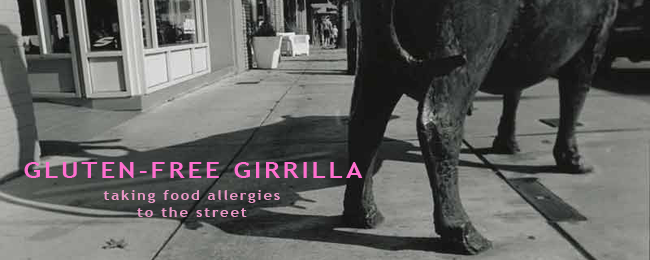Now this post contains gluten, dairy and soy content! But since it is also about the health benefits of eating certain foods, I think in that respect we're okay.
I came across the most marvelous book about food and I wanted to share it with you. The book is called "The Jungle Effect", and was written by an American physician, Dr. Daphne Miller.
Because Dr. Miller is a family physician, her practice includes a number of patients with modern diseases such as diabetes, high blood pressure, heart disease, and the like. Not content to treat these diseases with drugs alone, she decided to investigate populations where there is resistance to disease -- her so-called "cold spots" (as opposed to hot spots) for disease.
By traveling throughout the world and working with experts in the fields of anthropological nutrition and disease, she has been able to dissect the diets of a number of indigenous populations and explain to us why these diets are so healthy.
For example, the island of Okinawa, Japan, is a cold spot for colon and prostate cancer. As it turns out, people on this island eat a diet that is different from the rest of Japan, a kind of fusion diet influenced by a number of nearby Asian countries. They eat far more fruits and vegetables of every kind, and especially those containing lycopene.
In men, lycopene concentrates in the prostate gland, and studies have shown between a 25 - 80% reduction in risk for prostate cancer in men eating a lot of lycopene. But that's just one antioxidant. Okinawans also eat foods high in glucosinolates -- for example, garlic, cabbage, brussels sprouts, bok choy, and broccoli, which have been shown to inhibit the development of hormone-sensitive cancers (i.e. breast cancer). On top of this, most Okinawans drink their water flavored with tea high in EGCG -- a flavonoid that has high anti-cancer properties. They cook their foods only briefly using a light steam or short stir fry (preserving the antioxidants) and they eat less food than they need to.
"The Jungle Effect" talks about these diets and methods of food preparation, along with indigenous diets from many other parts of the world: Iceland, Italy, Mexico, Senegal, and so forth. It has recipes and tips for finding indigenous foods in today's markets. The truth is, I had never understood how to cook my own beans before reading this book, and now I cook them all the time (with impressive flavor results!)
Tip: Mixing a tablespoon or so of vinegar with rice will make the rice slower to digest, reducing the rice's glycemic index.
Tip: Cooking vegetables such as carrots in a little olive oil makes the beta carotene easier for the body to absorb.
Where do these tips come from? Find out in the book and enjoy good health!
Monday, December 27, 2010
Subscribe to:
Post Comments (Atom)

No comments:
Post a Comment